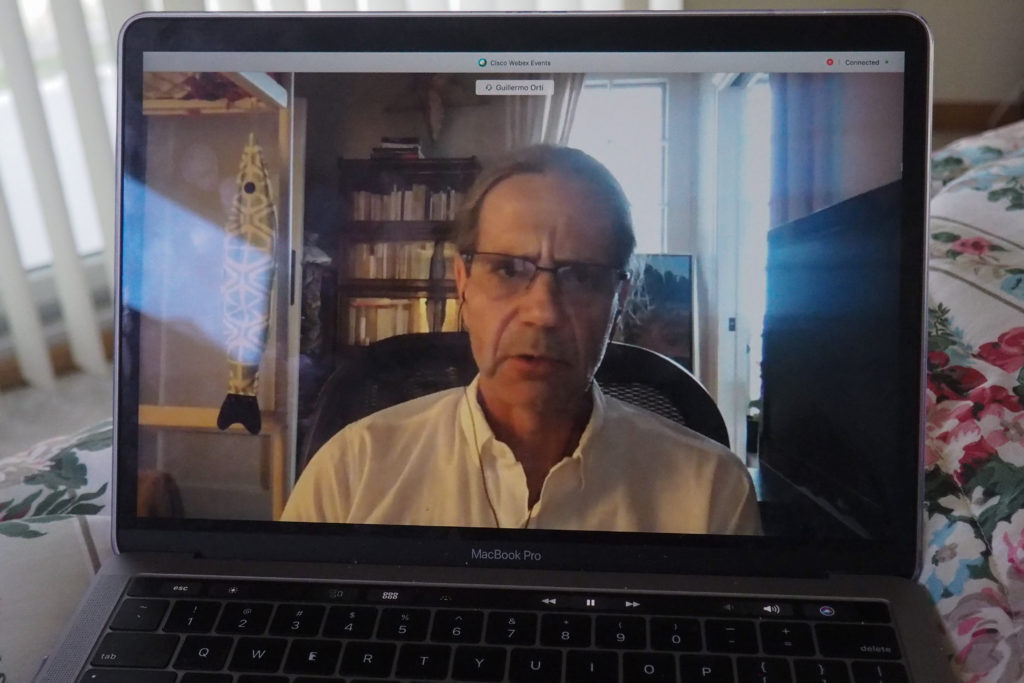The Faculty Senate passed a resolution Thursday calling on officials to prioritize short-term budgetary changes in light of the financial impact that the COVID-19 pandemic poses on GW.
The resolution builds on a previous resolution from the last senate meeting that called on officials to rely on furloughs and layoffs as a “last resort.” The senate also debated a resolution to reaffirm the University’s commitment and financial support to diversity, equity and inclusion, voted to fill a vacant position on the senate’s executive committee and discussed updates for the upcoming fall semester.
Guillermo Orti, a faculty senator and professor of biology, said the budget resolution specifies the senate’s expectations for how long-term changes could be made to the budget and “amplifies” the ideas laid out in the previous resolution on budget austerity principles.
The resolution states that administrators must establish any structural long-term changes in consultation with the senate and its relevant committees, and administrators and faculty must present a plan of these long-term changes to the Board of Trustees by spring 2021.
Kim Roddis, a professor of civil engineering, opposed the resolution, saying it felt “rushed” since senators were working to get the resolution passed prior to the Board’s meeting last month, and she proposed that the resolution be referred back to the executive committee.
“I feel that it would benefit from crisper language, and I feel that the urgency driving it earlier this month before the Board meeting has become moot,” she said.
The vote to send the resolution back to committee failed overwhelmingly, and the senate passed the resolution in a near-unanimous vote.
Faculty senators voted to send the diversity, equity and inclusion resolution back to committee consideration following disagreements over the specific wording of the legislation.
Orti said former faculty senator Holly Dugan initially introduced the second resolution in February, but senators revised the resolution to provide a clearer statement in light of the killings of George Floyd and Breonna Taylor and nationwide protests against police brutality.
“We felt like the resolution could be revised and put in the agenda to send a clear message of a statement on diversity, equity and inclusion,” Orti said.
Harald Griesshammer, a faculty senator and associate professor of physics, said the resolution should be sent back to the executive committee for further discussion in light of the debate surrounding the language of the resolution.
“I completely sympathize with everything that was said about the resolution and that we need to make a clear signal, but that also means we also need to be careful about the words we are using to describe our sentiment,” he said.
Arthur Wilson, the chair of the executive committee, said in closing remarks that the executive committee has had to take on resolutions that have been proposed lately in the interest of time due to the emergency conditions that the COVID-19 pandemic has presented but in the future will return to relying more on the other relevant committees to put forward resolutions on the senate’s agenda.
“Going forward, we can make greater use of the committee process to vet and scrutinize these resolutions,” he said.
The senate also elected Hugh Agnew, a professor of history and international affairs, as the representative of the Elliott School of International Affairs to the executive committee after Nicholas Vonortas, a professor of economics and international affairs who initially held the position, stepped down from the committee. Vonortas will maintain his senate seat.
Executive Vice President and Chief Financial Officer Mark Diaz also provided an update on the budget to the senate, saying officials plan to spend nearly $25 million next fiscal year to prevent the spread of the novel coronavirus. Diaz and University President Thomas LeBlanc said officials are considering several ways to reduce expenses, including layoffs and personnel decisions.











